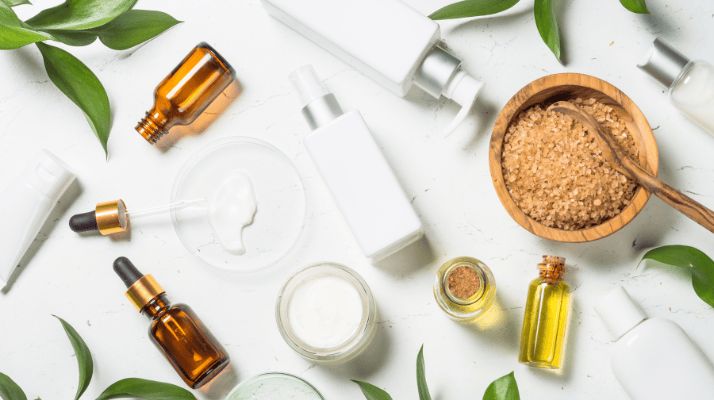Aixuze Insights
Explore the latest trends and insights on diverse topics.
Beauty in a Bottle: Myths and Truths About Your Favorite Cosmetics
Uncover the shocking truths and myths behind your beloved cosmetics! Discover what’s really in your beauty products today!
Debunking the Top 5 Myths About Skincare Ingredients
In the world of skincare, misinformation can spread rapidly, often leading consumers to avoid beneficial ingredients based on myths. One prevalent myth is that natural ingredients are always better for your skin than synthetic ones. However, many synthetic skincare ingredients are formulated to be effective, safe, and stable, often with extensive scientific backing. To understand more about this, check out this informative article from Healthline.
Another common misconception is that alcohol in skincare products is detrimental to your skin's health. While certain types of alcohol can be drying, others serve as effective preservatives or carriers for active ingredients. Recognizing the distinction between beneficial and harmful alcohols can ensure that you choose products that complement your skin well. For further information, see this detailed review on Clearly.ca.

The Truth Behind 'Cruelty-Free' Labels: What You Need to Know
The term 'Cruelty-Free' has gained significant traction in the beauty and personal care industry, but what does it truly mean? Many consumers assume that products labeled as cruelty-free have never been tested on animals at any stage of their development. However, this definition can vary based on the certifying organization. Some brands might still source ingredients from suppliers that conduct animal testing, while others might comply with legal exemptions in certain regions. To better understand these nuances, it's essential to look for certification seals from trusted organizations like Leaping Bunny or Cruelty-Free Kitty, which provide more transparency in the cruelty-free claims made by brands.
Another factor to consider when evaluating 'Cruelty-Free' labels is the actual efficacy of these products. Just because a product does not test on animals does not necessarily mean it is free from harmful or toxic ingredients. The Environmental Working Group emphasizes that some cruelty-free products can still contain ingredients that are detrimental to human health or the environment. Therefore, it's crucial for consumers to conduct their own research and read ingredient labels carefully. Understanding the entire supply chain, along with the ethical implications of your purchases, can help you make more informed decisions when choosing cruelty-free products.
Are Expensive Cosmetics Worth It? Unpacking Price vs. Performance
The debate surrounding high-end cosmetics often revolves around the question: Are expensive cosmetics worth it? While many consumers swear by luxury brands, asserting that their formulations deliver superior results, the reality is more nuanced. Research shows that brand marketing plays a significant role in consumer perception, leading some to believe that a higher price tag equates to better quality. According to a Forbes article, many affordable products perform just as well as their pricier counterparts. Ultimately, it's essential to evaluate cosmetic purchases based on individual needs and ingredient efficacy rather than solely on brand prestige.
When considering whether expensive cosmetics are truly worth the investment, it's helpful to analyze the price versus performance metric. Premium brands often include advanced technologies and unique ingredients that can yield exceptional results, but that doesn't always guarantee that they will outperform more affordable options. A Healthline article suggests focusing on specific ingredients and product formulations that align with your skin type and cosmetic goals. Ultimately, discerning consumers must weigh their budget against the potential benefits while remaining open to discovering high-quality, budget-friendly alternatives.